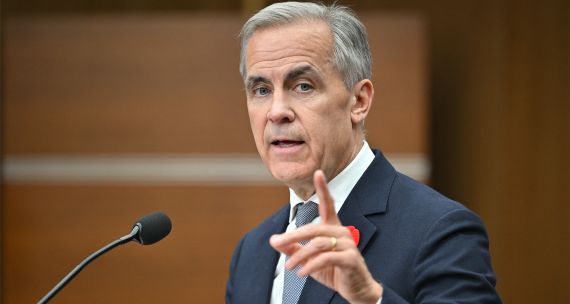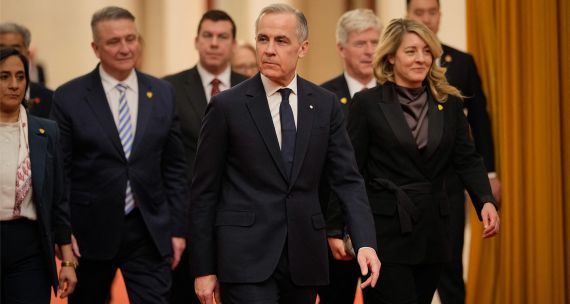China’s provisional 75.8-per-cent anti-dumping tariff on Canadian canola seed imports is not just an agricultural trade dispute – it’s an unmistakable act of economic coercion. Coming just days after Canadian and Chinese officials met to discuss trade issues, this move is timed to inflict maximum pressure, coming right before the canola harvest and squarely aimed at creating domestic political division.
Beijing has already slapped 100-per-cent tariffs on Canadian canola oil and meal in retaliation for Canada’s 100-per-cent tariff on Chinese electric vehicles (EVs). By making the new canola tariff “provisional,” China leaves the door open to scaling it back – but only if Ottawa offers concessions. This is the playbook we’ve seen before, and it’s a dangerous trap.
In 2019, China halted imports of Canadian canola seeds over Canada’s detention of Huawei’s CFO, Meng Wanzhou, causing billions in losses for Prairie farmers and exporters. Canada’s not alone. Other democracies have all faced China’s use of trade as a geopolitical weapon. When Beijing is displeased, it punishes – selectively and strategically – to maximize leverage.
That is why calls from some commentators and political leaders for Prime Minister Mark Carney to personally intervene to “resolve” this dispute risk missing the bigger point. Stability, predictability and rules-based trade are not possible with a partner that repeatedly uses market access as a bargaining chip. Any “return” to normal is temporary, lasting only until the next disagreement.
The timing and target of these tariffs are not accidental. By hitting canola producers just before harvest, China is aiming at the economic lifeblood of the Prairies. At the same time, Beijing hopes to pit Western farmers against Ontario and Quebec’s auto sector – the industry most invested in maintaining Canada’s tariffs on Chinese EVs. It’s a calculated attempt to fracture Canada’s domestic unity and pressure Ottawa into an early retreat.
We cannot afford to take that bait. Concessions now will only embolden further demands. Giving in on EV tariffs would be just the first in a series of concessions Beijing would seek, undermining our ability to protect strategic industries in the future.
It’s worth remembering why Canada imposed tariffs on Chinese EVs in the first place. This was not simply an act of solidarity with Washington. It was a measure to protect Canada’s national interest, shielding our emerging EV manufacturing capacity from a flood of heavily subsidized Chinese imports that could undercut our economic security, cybersecurity, and industrial policy objectives. Protecting critical sectors like EV manufacturing is part of building long-term national resilience.
Even if Ottawa and Beijing manage to reach a temporary resolution on canola, the underlying problem will remain. So long as Canada’s economy is heavily dependent on a partner willing to weaponize trade (the U.S. or China), we will remain vulnerable to future coercion. The lesson from 2019 – and from Australia’s experience with Chinese tariffs on wine, coal and barley – is clear: diversify or be held hostage.
What Canada needs to do instead is provide immediate support to canola farmers while pursuing a longer-term strategy to de-risk from both China and the U.S., reducing overdependence on any single partner. At the same time, Canada should develop alternative domestic uses for canola, such as biofuels and plant-based proteins, to lessen reliance on a narrow set of export channels.
Strengthening rules-based trade through agreements like the CPTPP, CETA, and new free trade agreements with trusted partners in Asia and Europe must be a priority, as should investing in domestic processing capacity to capture more value at home. None of these steps will be quick or easy, but they are essential if Canada is to withstand future attempts at economic coercion, whether from China or any other country.
Diplomacy with China should continue, including at the highest levels. Dialogue is important to manage differences, keep communication channels open and address shared global challenges. But it must be grounded in a clear-eyed understanding of the nature of the Chinese Communist Party and its pressure tactics. Recognizing it as such allows us to respond strategically, with unity, resilience and a firm refusal to make concessions that would compromise our sovereignty or long-term economic security.
The stakes in this dispute go far beyond canola. China’s message is clear: it will use economic muscle to get its way. Our message must be just as clear: Canada will not be divided, will not be coerced, and will chart its own course based on its national interest.
This article first appeared in The Globe and Mail on August 18, 2025.





